Do we even need to say it at this point? Life is stressful. It’s fast, it’s complicated and it’s demanding – it’s easy to feel anxious and overwhelmed considering all the demands on our time and attention these days.
Stress and anxiety are familiar to many people, but can come with symptoms so severe in some that medical advice, diagnosis or treatment is necessary. Panic attacks are a common symptom of severe anxiety, and can be so alarming that they are often mistaken for medical episodes.
Medications can help ease the symptoms of anxiety and depression in these chronic cases, and there are a number of therapeutic treatments that can help sufferers improve anxiety symptoms and lead high-quality lives again.
But for less severe or occasional cases of everyday anxiety, medications are not the only way to get a little relief. Much of our natural way of regulating mood comes down to maintaining chemical balances in the body and brain, and ingesting certain nutrients and more remedies has been proven to help us do just that, naturally.
What you put in is what you get out, after all, so here are three of the most important nutritional aspects of good mood regulation and stress management without the need for prescription medications.
Vitamin B Complex
The B vitamins (there are eight of them in total) play an important role in many bodily functions, not least of all managing our stress levels and maintaining a healthy nervous system. Studies suggest that a deficiency of Vitamin B12 are more likely to suffer from anxiety, and that people who eat foods high in B Vitamins manage anxiety more effectively than people who don’t.
For some excellent sources of B Vitamins, stock up your fridge with meat, eggs and dairy, as well as leafy greens and fortified cereals.
Omega-3 Fatty Acids
Did you know the brain is composed mainly of fat? It’s no surprise, therefore, that optimal brain health requires a healthy dose of Omega-3 fatty acids, which can easily be obtained from foods like flaxseed, oily fish, nuts, plant oils, and avocados.
Past studies suggest that a low intake of Omega-3 fatty acids can raise the risk of anxiety and depression, and that taking supplements for anxiety that contain high doses of Omega-3 can help prevent or even treat these mood disorders.
Eating for Happiness – The Bottom Line
Hippocrates, the ancient Greek physician and sometimes called the father of modern medicine, once said “Let thy food be thy medicine and medicine be thy food”. If you are suffering from occasional bouts of anxiety and feeling the burdens of everyday life, making sure you are getting enough of these essential dietary elements is an excellent place to start. This article is intended to guide you for educational purposes only, so if you struggle with depression or anxiety and aren’t sure where to go for help, don’t hesitate to reach out to the South African Depression and Anxiety Group (SADAG) at www.sadag.org.
References available on request: MC-21-087 V02




